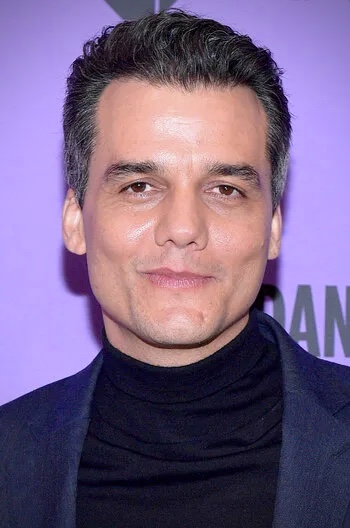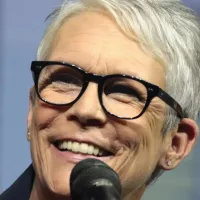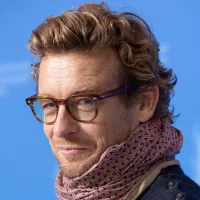The modern Olympic Games are a leading international sporting event held every four years, featuring both Summer and Winter Games alternating every two years since 1994. Thousands of athletes from over 200 teams, representing different countries and territories, participate in a variety of competitions. The Olympics serve as a de facto world championship in their respective sports during the year they are held, welcoming both amateur and professional athletes.
1900: Olympic Games held at the Paris Exposition in 1900
In 1900, the Olympic Games held at the Paris Exposition failed to attract much participation or notice.
1900: Women first allowed to compete
In 1900, women were first allowed to compete at the Summer Olympics in Paris.
1904: Thomas Hicks used strychnine during the marathon at the 1904 Olympics
In 1904, Thomas Hicks, a gold medallist in the marathon, was given strychnine by his coach. At the time, doping was allowed, as there was no data regarding the effect of these substances on a body of an athlete.
1904: Louisiana Purchase Exposition at St. Louis in 1904
In 1904, the Louisiana Purchase Exposition at St. Louis failed to attract much participation or notice.
1904: Introduction of the three-medal format
In 1904, the current three-medal format (gold, silver, bronze) was introduced at the Olympics.
1906: The 1906 Intercalated Games held in Athens
In 1906, the Intercalated Games were held in Athens, attracting a broad international field of participants and generating a great deal of public interest, marking the beginning of a rise in both the popularity and the size of the Olympics.
1908: Figure skating as an Olympic event
In 1908, figure skating was featured as an Olympic event at the Summer Olympics.
1912: Gold medals made of gilded silver
Until 1912, Olympic gold medals were solid gold. Later, they were made of gilded silver.
1916: Cancellation of the 1916 Olympics
In 1916, the Olympic Games were cancelled due to World War I.
1920: Ice hockey and Figure skating as Olympic events
In 1920, ice hockey and figure skating were featured as Olympic events at the Summer Olympics.
1921: Decision to hold a winter version of the Olympic Games
In 1921, at the Olympic Congress in Lausanne, it was decided to hold a winter version of the Olympic Games.
1924: First Winter Olympic Games held in Chamonix, France
In 1924, the first Winter Olympic Games were held in Chamonix, France, in connection with the Paris Games held three months later.
1936: Nazi Germany hosted the 1936 Games
In 1936, Nazi Germany hosted the Olympic Games, aiming to portray the National Socialist Party as benevolent while also displaying Aryan superiority. Germany's success was blunted by the victories of Jesse Owens and Ibolya Csák.
1940: Cancellation of the 1940 Olympics
In 1940, the Olympic Games were cancelled due to World War II.
1940: 1940 Games cancelled
The summer and winter games of 1940 were cancelled because of World War II.
1944: Cancellation of the 1944 Olympics
In 1944, the Olympic Games were cancelled due to World War II.
1944: 1944 Games cancelled
The summer and winter games of 1944 were cancelled because of World War II.
1948: Introduction of Olympic diplomas
From 1948 onward, athletes placing fourth, fifth, and sixth have received certificates, which came to be known officially as Olympic diplomas.
1948: Inaugural Stoke Mandeville Games
In 1948, Sir Ludwig Guttmann organized a multi-sport event between several hospitals to coincide with the 1948 London Olympics, known as the Stoke Mandeville Games.
1952: The Soviet Union participated in the 1952 Summer Olympics in Helsinki
The Soviet Union did not participate until the 1952 Summer Olympics in Helsinki. Prior to this, starting in 1928, the Soviets organised an international sports event called Spartakiads.
1956: The Soviets emerged as a sporting superpower in the 1956 Summer Games.
During the 1956 Summer Games, the Soviets emerged as a sporting superpower, taking full advantage of the publicity that came with winning at the Olympics, due to a heavy state's investment in sports.
1960: First Paralympics in Rome
In 1960, Guttmann brought 400 athletes to Rome to compete in the "Parallel Olympics", which ran in parallel with the Summer Olympics and came to be known as the first Paralympics.
1960: Average cost of Summer and Winter Games since 1960
Since 1960, sports-related costs for the Summer Games were on average US$5.2 billion and for the Winter Games $3.1 billion according to the Oxford Olympics Study 2016.
1960: Average overrun for Games since 1960 is 156% in real terms
Since 1960, the average cost overrun for the Olympic Games has been 156% in real terms, meaning actual costs were on average 2.56 times the budget estimated when the bid was won.
1960: Death of Knud Enemark Jensen at the 1960 Summer Olympics due to amphetamines
The only Olympic death linked to performance enhancing occurred at the 1960 Summer Olympics in Rome, when Danish cyclist Knud Enemark Jensen died after falling from his bicycle. A coroner's inquiry found that he was under the influence of amphetamines.
1967: IOC banned the use of performance-enhancing drugs in 1967
By the mid-1960s, sports federations started to ban the use of performance-enhancing drugs; in 1967 the IOC followed suit.
1968: Black Power salute at the 1968 Summer Olympics
At the 1968 Summer Olympics in Mexico City, American track and field athletes Tommie Smith and John Carlos performed the Black Power salute on the victory stand, leading to their suspension. Věra Čáslavská protested the Soviet invasion of Czechoslovakia during the medal ceremony.
1968: Hans-Gunnar Liljenwall lost his bronze medal for alcohol use at the 1968 Summer Olympics
The first Olympic athlete to test positive for the use of performance-enhancing drugs was Hans-Gunnar Liljenwall, a Swedish pentathlete at the 1968 Summer Olympics, who lost his bronze medal for alcohol use.
1972: Munich Massacre
In 1972, during the Summer Games in Munich, eleven members of the Israeli Olympic team were taken hostage by the Palestinian terrorist group Black September in the Munich massacre. Two athletes were killed soon after being taken hostage, and the other nine were killed during a failed liberation attempt.
1976: Ambitious construction for the 1976 Summer Games in Montreal
In 1976, ambitious construction for the Summer Games in Montreal burdened organisers with expenses greatly in excess of revenues.
1976: Montreal 1976 had the highest cost overrun for Summer Games
In 1976, the Montreal Summer Games had the highest cost overrun for any Summer Games, at 720%.
1976: Republic of China (Taiwan) excluded from the 1976 Games
In 1976, the Republic of China (Taiwan) was excluded from the Olympic Games by order of Pierre Trudeau, the prime minister of Canada, leading to widespread condemnation. They were not allowed to use ROC flag and anthem. Taiwan did not participate again until 1984.
1980: Allegations of widespread drug use at the 1980 Summer Olympics
According to an Australian study from 1989, there was hardly a medal winner at the 1980 Summer Olympics, certainly not a gold medal winner, who was not on one sort of drug or another, usually several kinds. The Moscow Games might as well have been called the Chemists' Games.
1980: Ambitious construction for the 1980 Summer Games in Moscow
In 1980, ambitious construction for the Summer Games in Moscow burdened organisers with expenses greatly in excess of revenues.
1980: Lake Placid 1980 had the highest cost overrun for Winter Games
In 1980, the Lake Placid Winter Games had the highest cost overrun for any Winter Games, at 324%.
1980: Boycotts during the Cold War limited participation in the 1980 Olympics
In 1980, the Olympic Games faced limited participation due to large-scale boycotts during the Cold War.
1980: United States and other countries boycotted the Moscow Olympics
In 1980, the United States and sixty-five other countries boycotted the Moscow Olympics because of the Soviet invasion of Afghanistan. This boycott reduced the number of participating nations to 80, the lowest since 1956.
1984: Olympic diplomas awarded to seventh and eighth place finishers
From 1984, Olympic diplomas have also been awarded to the seventh- and eighth-place finishers.
1984: Boycotts during the Cold War limited participation in the 1984 Olympics
In 1984, the Olympic Games faced limited participation due to large-scale boycotts during the Cold War.
1984: Soviet Union and other nations boycotted the Los Angeles Olympics
In 1984, the Soviet Union and 15 other nations boycotted the Los Angeles Olympics, leading to a warm reception for the Romanian team who chose to compete. The boycotting nations staged their own alternate event, the Friendship Games, in July and August.
1984: 1984 Summer Olympics financially successful
In 1984, the Summer Olympics in Los Angeles strictly controlled expenses by using existing facilities and corporate sponsors and are often considered the most financially successful modern Olympics to that date.
1986: Aruban Olympic Committee recognized in 1986
In 1986, the Aruban Olympic Committee was recognized by the IOC.
1988: Ben Johnson disqualified from the 1988 Summer Olympics for doping
In 1988, Canadian sprinter Ben Johnson, who won the 100-metre dash, tested positive for stanozolol at the Summer Olympics and was subsequently disqualified.
1988: Host city for the Olympics has also played host to the Paralympics
In 1988, starting with the Summer Games in Seoul, the host city for the Olympics has also played host to the Paralympics.
1988: Seoul Summer Olympics in 1988
The 1988 Summer Olympics in Seoul, South Korea marked the beginning of an increase in Olympics held in Asia or Oceania.
1989: Australian study says about widespread drug use at the 1980 Summer Olympics
In 1989, an Australian study said there was hardly a medal winner at the 1980 Summer Olympics, certainly not a gold medal winner, who was not on one sort of drug or another, usually several kinds. The Moscow Games might as well have been called the Chemists' Games.
1991: Bombing in Vic, Catalonia
In 1991, the ETA terrorist organisation conducted a bombing in the Catalonian city of Vic that killed ten people.
1992: 35 countries field all-male delegations
At the 1992 Summer Olympics, 35 countries still fielded all-male delegations.
1992: Winter Games in Albertville, France
In 1992, the Winter Games took place in Albertville, France, marking the last time the Winter and Summer Olympics were held in the same year.
1994: Alternation of Summer and Winter Olympics
In 1994, the Summer and Winter Olympics began alternating every two years during the four-year Olympiad, a change from the previous tradition of holding them in the same year.
1994: Winter Olympics held two years after each Summer Olympics
In 1994, the Winter Olympics were held two years after each Summer Olympics, breaking the tradition of holding them in the same year.
1996: Bombing at Centennial Olympic Park
During the 1996 Summer Olympics in Atlanta, a bomb was detonated at the Centennial Olympic Park, killing two people and injuring 111 others. The bomb was set by Eric Rudolph.
1999: Formation of the World Anti-Doping Agency (WADA)
In 1999, the IOC formed the World Anti-Doping Agency (WADA) in an effort to systematise the research and detection of performance-enhancing drugs.
2000: Bahrain sends first women competitors
In 2000, Bahrain sent two women competitors, Fatema Hameed Gerashi and Mariam Mohamed Hadi Al Hilli, for the first time.
2000: Sharp increase in positive drug tests at the 2000 Summer Olympics
There was a sharp increase in positive drug tests at the 2000 Summer Olympics due to improved testing conditions. Several medallists in weightlifting and cross-country skiing from post-Soviet states were disqualified.
2001: Jacques Rogge conceived Youth Olympic Games
In 2001, IOC president Jacques Rogge conceived the Youth Olympic Games and approved during the 119th Congress of the IOC.
2001: Agreement between IOC and IPC
In 2001, The International Olympic Committee (IOC) and the International Paralympic Committee (IPC) signed an agreement which guaranteed that host cities would be contracted to manage both the Olympic and Paralympic Games.
2002: Increased security at Salt Lake City Winter Olympics
The 2002 Winter Olympics in Salt Lake City took place just five months after the September 11 attacks, leading to a higher level of security.
2002: Sharp increase in positive drug tests at the 2002 Winter Olympics
There was a sharp increase in positive drug tests at the 2002 Winter Olympics due to improved testing conditions. Several medallists in weightlifting and cross-country skiing from post-Soviet states were disqualified.
2004: Olive wreaths presented to medal winners
At the 2004 Summer Olympics in Athens, the gold, silver, and bronze medal winners were also presented with olive wreaths.
2004: Arash Miresmaeili's Disqualification at the 2004 Summer Olympics
In 2004, Iranian judoka Arash Miresmaeili did not compete against an Israeli athlete during the Summer Olympics. Although officially disqualified for being overweight, he received prize money from the Iranian government, raising suspicion.
2004: Afghanistan sends first women competitors
In 2004, Robina Muqimyar and Fariba Rezayee became the first women to compete for Afghanistan.
2004: South Africa's Bid to Host Olympics in 2004
In 2004, South Africa made an unsuccessful bid to host the Olympics, contributing to the continued absence of the Games in Africa.
2008: More medal events for men than women
As of 2008, there were still more medal events for men than women at the Olympics.
2008: Call for Saudi Arabia to be barred from the Games
In 2008, Ali al-Ahmed called for Saudi Arabia to be barred from the Games due to its ban on women athletes.
2008: Beijing 2008 was the most expensive Summer Games
In 2008, the Beijing Summer Games were the most expensive Summer Games at US$40–44 billion.
2008: United Arab Emirates sends female athletes for the first time
In 2008, the United Arab Emirates sent female athletes for the first time; Maitha Al Maktoum competed in taekwondo, and Latifa Al Maktoum in equestrian.
2008: Agreement between IOC and IPC came into effect at the 2008 Summer Games in Beijing
In 2008, the agreement between the International Olympic Committee (IOC) and the International Paralympic Committee (IPC) came into effect at the Summer Games in Beijing.
2008: Russo-Georgian War erupts on opening day
The Russo-Georgian War erupted on the opening day of the 2008 Summer Olympics in Beijing, attended by George W. Bush and Vladimir Putin.
July 2010: Pressure grows on IOC to kick out Saudi Arabia
In July 2010, The Independent reported that pressure was growing on the International Olympic Committee to exclude Saudi Arabia from the 2012 Olympics for not including women in their team.
August 2010: First Summer Youth Games held in Singapore
In August 2010, the first Summer Youth Games were held in Singapore.
2010: IOC did not allow the formation of NOCs for Sint Maarten and Curaçao in 2010
In 2010, the IOC did not allow the formation of NOCs for Sint Maarten and Curaçao when they gained the same constitutional status as Aruba.
2010: IOC to press countries to include women
In 2010, the International Olympic Committee announced it would "press" Brunei, Saudi Arabia, and Qatar to enable the participation of women for the 2012 Summer Olympics in London.
2010: Agreement between IOC and IPC came into effect at the 2010 Winter Games in Vancouver
In 2010, the agreement between the International Olympic Committee (IOC) and the International Paralympic Committee (IPC) came into effect at the Winter Games in Vancouver.
2012: Every nation includes female athletes for the first time
At the 2012 Summer Olympics, every participating nation included female athletes for the first time. Saudi Arabia included two female athletes, Qatar, four, and Brunei, one. Qatari shooter Bahiya al-Hamad was its flagbearer and Maryam Yusuf Jamal of Bahrain won a bronze medal.
2012: Qatar hopes to send female athletes
In 2010, after the IOC's announcement, the Qatar Olympic Committee stated they hoped to send up to four female athletes in shooting and fencing to the 2012 Summer Games.
2012: Threats of protests if Saudi Arabia sends male-only team
In 2010, it was reported that if Saudi Arabia sent a male-only team to London in 2012, they would face protests from equal rights and women's groups.
2012: British Olympic Association bid for the 2012 Olympic Games in London
In 2012, the British Olympic Association referenced the Cotswold Games as "the first stirrings of Britain's Olympic beginnings" during their bid for the London Olympic Games.
2012: Statement about the Paralympics and Olympics in London
In 2012, the LOCOG chairman Lord Coe made a statement about the Paralympics and Olympics in London.
2012: London 2012 had a cost overrun of 76%
In 2012, the London Olympic Games had a cost overrun of 76%.
2012: Cost per athlete was $1.4 million for London 2012
In 2012, the cost per athlete for the London Summer Games was $1.4 million.
2012: Athletes from the former Netherlands Antilles have the option to represent either the Netherlands or Aruba since 2012
Since 2012, athletes from the former Netherlands Antilles have had the option to represent either the Netherlands or Aruba.
2012: Women athletes compete in all sports open to men
With the addition of women's boxing to the program, women athletes were able to compete in all the sports open to men at the 2012 Summer Olympics.
2014: Sochi 2014 had a cost overrun of 289%
In 2014, the Sochi Winter Games had a cost overrun of 289%.
2014: Sochi 2014 was the most expensive Winter Games
In 2014, the Sochi Winter Games were the most expensive Winter Games at US$51 billion.
2014: Georgia called for a boycott of the 2014 Winter Olympics
In August 2008, the government of Georgia called for a boycott of the 2014 Winter Olympics, set to be held in Sochi, Russia, in response to Russia's participation in the 2008 South Ossetia war.
2014: Russia naturalises athletes for Sochi Olympics
In preparation for the 2014 Winter Olympics in Sochi, the Russian Olympic Committee naturalised South Korean-born short-track speed-skater, Ahn Hyun-soo, and American-born snowboarder, Vic Wild.
2016: Rio de Janeiro Hosts First South American Olympics
In 2016, Rio de Janeiro hosted the first Olympics for a South American country, marking a milestone in the geographical expansion of the Games.
2016: Documents revealed Soviet Union's plans for a statewide doping system in track and field in preparation for the 1984 Summer Olympics in Los Angeles
In 2016, documents obtained revealed the Soviet Union's plans for a statewide doping system in track and field in preparation for the 1984 Summer Olympics in Los Angeles. The documents were dated prior to the country's decision to boycott the Games.
2016: Russia was partially banned from the 2016 Summer Olympics
Russia was partially banned from the 2016 Summer Olympics due to the state-sponsored doping programme.
2016: Oxford Olympics Study 2016
The Oxford Olympics Study 2016 found that sports-related costs for the Summer Games were on average US$5.2 billion and for the Winter Games $3.1 billion since 1960.
2017: IOC Announces Changes to Olympic Selection Process
In 2017, the IOC began announcing winning bids for the Olympics with a longer lead-in time, starting with the 2024 and 2028 Olympics, to allow host cities more time to prepare. The selection process spans two years and involves a questionnaire to ensure compliance with the Olympic Charter.
2018: Mixed curling event introduced
Beginning in 2018, the sport of curling introduced a mixed event with teams of one man and one woman competing for a medal.
2018: Russia was banned from the 2018 Winter Olympics
Russia was banned from the 2018 Winter Olympics due to the state-sponsored doping programme, but was still allowed to participate as the "Olympic Athletes from Russia".
December 2019: Russia banned for four years from all major sporting events for systematic doping
In December 2019, Russia was banned for four years from all major sporting events for systematic doping and lying to WADA. The ban was issued by WADA on 9 December 2019.
December 2020: Reduction of total costs from the budget announced in December 2020
In December 2020, the total costs for the Tokyo Olympics were reduced by JPY 220.2 billion (US$2 billion) from the budget announced.
December 2020: CAS reduced the penalty that WADA had placed on Russia
On 17 December 2020, CAS ruled to reduce the penalty that WADA had placed on Russia. Instead of banning Russia from sporting events, the ruling allowed Russia to participate at the Olympics and other international events, but for a period of two years the team cannot use the Russian name, flag, or anthem and must present themselves as "Neutral Athlete" or "Neutral Team".
2020: All current NOCs participate in Summer Olympics
As of the 2020 Summer Games in Tokyo, all of the current 207 NOCs (and 19 obsolete NOCs) have participated in at least one edition of the Summer Olympics.
2020: 11,300 competitors representing 206 nations in 2020
In 2020, more than 11,300 competitors representing 206 nations participated in the Summer Olympics.
2020: Over 14,000 athletes competed at the 2020 Summer Olympics
In 2020, over 14,000 athletes competed at the Summer Olympics, participating in 40 different sports and 448 events.
2020: Postponement of the 2020 Olympics
In 2020, the Olympic Games were postponed until 2021 due to the COVID-19 restrictions.
December 2021: Reduction of estimated budget in December 2021
In December 2021, the estimated budget for the Tokyo Olympics was reduced by JPY 29.2 billion (US$0.3 billion).
December 2021: Kamila Valieva's doping sample taken
On December 25, 2021, Kamila Valieva's sample was taken by RUSADA at the 2022 Russian Figure Skating Championships, which later tested positive for trimetazidine.
2021: Increase of Olympics in Asia and Oceania
As of 2021, since the 1988 Summer Olympics in Seoul, South Korea, the Olympics have been held in Asia or Oceania four times, a sharp increase compared to the previous 92 years.
2021: Postponed 2020 Olympics held in 2021
In 2021, the Olympic Games that were postponed from 2020 due to the COVID-19 restrictions were held.
February 2022: Doping issue raised over Kamila Valieva's positive test
In February 2022, during the Beijing Olympics, it was reported that Kamila Valieva from ROC had tested positive for trimetazidine. The sample was taken in December 2021, but was analyzed on February 8th, 2022. Due to Valieva being a minor, investigations were broadened to include her entourage.
October 2022: Kamila Valieva continues to compete within Russia
In October 2022, Kamila Valieva continued to compete within Russian borders without being hindered by RUSADA despite Russia being banned from international skating events due to the invasion of Ukraine.
2022: Diplomatic boycotts of the 2022 Winter Olympics in Beijing
Continuing human rights violations in China have led to "diplomatic boycotts" of the 2022 Winter Olympics in Beijing by several countries, most notably the United States.
2022: Beijing hosted 2,971 athletes from 91 nations in 2022
In 2022, Beijing hosted 2,971 athletes from 91 nations for the Winter Olympics.
2022: IOC recommends no participation of Russian and Belarusian athletes and officials
In 2022, following the Russian invasion of Ukraine, the IOC Executive Board recommended that Russian and Belarusian athletes and officials not participate in the Olympics under their country's name.
2022: Over 14,000 athletes competed at the 2022 Winter Olympics
In 2022, over 14,000 athletes competed at the Winter Olympics, participating in 40 different sports and 448 events.
September 2023: CAS adjourns Kamila Valieva's hearing
On 28 September 2023, CAS ordered the production of further documentation and adjourned Kamila Valieva's hearing until November 9-10.
October 2023: IOC suspends Russian Olympic Committee
In October 2023, the IOC suspended the Russian Olympic Committee.
November 2023: IOC approves nationality changes for Russian athletes
In November 2023, the IOC Executive Board approved changes of nationality for athletes from Russia to other countries.
2023: IOC allows Russian and Belarusian athletes to participate under certain conditions
In 2023, the IOC announced that Russian and Belarusian athletes could participate in the Olympics under specific conditions, such as not representing their country and competing under a neutral flag and uniform.
January 2024: CAS disqualifies Kamila Valieva
On January 29, 2024, CAS disqualified Kamila Valieva for four years retroactive to December 25, 2021, due to an anti-doping rule violation.
February 2024: CAS upholds suspension of Russian Olympic Committee
In February 2024, CAS upheld the IOC's suspension of the Russian Olympic Committee.
March 2024: IOC approves nationality changes for Russian athletes
In March 2024, the IOC Executive Board approved changes of nationality for athletes from Russia to other countries.
2024: Men included in artistic swimming at Paris 2024 games
After men were included in artistic swimming at the Paris 2024 games, the only remaining Olympic event in which male athletes may not compete is rhythmic gymnastics. Despite being eligible, no men were included on any artistic swimming team.
2024: 13 mixed medal events at Paris 2024
As of the 2024 Paris games, there are now 13 mixed medal events across 11 disciplines at the summer games.
2024: Preparation Time for 2024 Olympics
In 2017, the IOC decided to allow for a longer lead-in time for preparation, starting with the 2024 Olympics, for the selected cities/regions to prepare.
2028: Preparation Time for 2028 Olympics
In 2017, the IOC decided to allow for a longer lead-in time for preparation, starting with the 2028 Olympics, for the selected cities/regions to prepare.
2032: Expansion of Olympic Host Cities
By 2032, the Olympic Games will have been hosted by 47 cities in 23 countries, showing a significant global expansion of the Games.
2034: IOC threatened to revoke the 2034 Olympics in Salt Lake City
In 2024, after the FBI and Justice Department started investigating the Chinese doping, the IOC threatened to revoke the 2034 Olympics in Salt Lake City, unless they dropped the investigation.
Mentioned in this timeline

Coca-Cola is a globally recognized cola soft drink produced by...

Vladimir Vladimirovich Putin is a Russian politician and former intelligence...
Ukraine is a country in Eastern Europe the second-largest on...

George W Bush the rd U S President - is...
CBS or CBS Broadcasting Inc is a major American commercial...
The Winter Olympic Games a major international multi-sport event held...
Trending

57 minutes ago Wagner Moura's Film 'Uma Batalha Após a Outra' Wins PGA Award, Oscar buzz.

57 minutes ago Jamie Lee Curtis' 'Blue Steel' finds streaming success; Curtis guests on podcast

57 minutes ago Analysts Mixed on UnitedHealth Group's Investment Story After Stock Slide
58 minutes ago Oil Price Surge and Stock Market Decline Sparked by Iran War Fears

58 minutes ago Simon Baker's family, girlfriend, and 'The Mentalist' coming to Netflix soon.
2 hours ago South African Health Officials Arrested on Fraud and Theft Charges.
Popular

Jesse Jackson is an American civil rights activist politician and...

Hillary Diane Rodham Clinton is a prominent American politician lawyer...

XXXTentacion born Jahseh Dwayne Ricardo Onfroy was a controversial yet...

Jim Carrey is a Canadian-American actor and comedian celebrated for...

Kashyap Pramod Patel is an American lawyer who became the...

Michael Joseph Jackson the King of Pop was a highly...